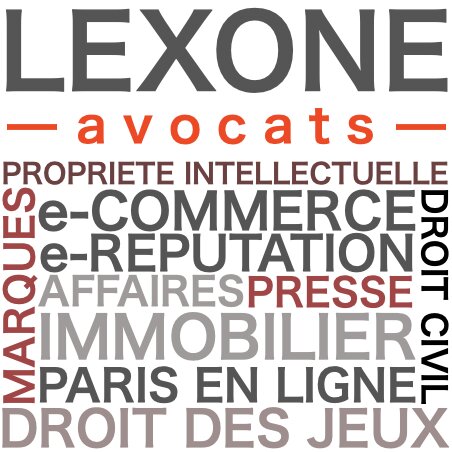Best General Litigation Lawyers in France
Share your needs with us, get contacted by law firms.
Free. Takes 2 min.
Or refine your search by selecting a city:
List of the best lawyers in France
About Litigation Law in France
Litigation in France refers to the legal process of resolving disputes between parties in a court of law. The French legal system, deeply rooted in civil law traditions, is characterized by a codified set of laws and regulations formulated in the Code Civil and other specialized codes. French courts aim to adjudicate disputes justly through a structured procedure that typically involves written submissions and oral arguments. The courts in France are divided into civil, criminal, administrative, and commercial jurisdictions, each dealing with different types of litigation cases.
Why You May Need a Lawyer
There are several circumstances where one might require the assistance of a lawyer specializing in litigation in France:
- Contract disputes: Differences over contractual obligations and breaches.
- Employment issues: Disputes arising between employers and employees over working conditions, terminations, and other employment matters.
- Family law: Matters involving divorce, child custody, and inheritance.
- Tort claims: Personal injury claims resulting from accidents or negligence.
- Intellectual property: Disputes over patents, trademarks, and copyright infringement.
- Criminal defense: Legal representation in criminal prosecutions.
Local Laws Overview
Key aspects of French litigation law relevant to potential litigants include:
- Civil Law System: The legal framework is based on statutes, with a prominent role for judges to apply the laws to specific cases.
- Inquisitorial System: Judges play an active role in investigating the facts of the case, in contrast to the adversarial system where parties conduct the investigation.
- Procedural Rules: Cases follow a strict procedural code, with emphasis on written submissions prior to oral hearings.
- Courts Structure: Judicial hierarchy consists of lower courts for less severe cases and specialized appellate courts for complex cases.
- No-Jury System: French courts do not utilize juries; decisions are made by professional judges.
- Alternative Dispute Resolution: French law encourages mediation and arbitration as effective alternatives to court litigation.
Frequently Asked Questions
What types of courts handle litigation in France?
France has several types of courts, including civil, criminal, administrative, and commercial courts, each addressing specific types of litigation.
Do I need a lawyer for all types of litigation?
While it's not mandatory to have a lawyer for all cases, having legal representation is highly recommended, especially for complex cases.
How long does litigation typically take in France?
Litigation duration can vary, but most cases take several months to a few years, depending on complexity and the court’s schedule.
What is the role of a judge in French lawsuits?
In France, judges take an active role in investigating cases and ensuring the law is applied correctly according to the civil law system.
Is there a statute of limitations for filing lawsuits in France?
Yes, different types of cases have varying limitation periods, typically ranging from one to ten years.
Can I appeal a court decision?
Yes, parties can appeal decisions to a higher court if they believe there has been a legal error in the judgment.
What costs are involved in pursuing litigation in France?
Costs may include attorney fees, court fees, and other related expenses. Legal aid may be available for those who qualify.
Is it possible to settle disputes outside of court?
Yes, alternative dispute resolution methods such as mediation and arbitration are encouraged to resolve disputes without court involvement.
How can international parties engage in litigation in France?
International parties must comply with French procedural laws and might require local legal representation to navigate the system effectively.
What is discovery in French litigation?
The discovery process is less extensive than in common law systems. French courts rely on written evidence presented by the parties, and the judge plays a role in gathering evidence.
Additional Resources
For more information, consider the following resources:
- The French Ministry of Justice (Ministère de la Justice) for official legal guidelines.
- National Bar Council of France (Conseil National des Barreaux) for finding legal representation.
- The French Court of Cassation's website for legal precedents.
- Local law libraries that provide access to legal texts and resources.
Next Steps
If you need legal assistance in litigation:
- Identify the type of litigation your issue falls under (civil, criminal, commercial, etc.)
- Consult with a qualified French attorney specializing in the relevant area of law.
- Collect and organize any documentation pertaining to your case.
- Prepare questions you have about the process to discuss with your lawyer.
- Explore alternative dispute resolution methods if appropriate.
- Stay informed about your case status and actively participate in proceedings.
Seeking professional legal counsel is crucial to navigate the complexities of the French legal system effectively.
Lawzana helps you find the best lawyers and law firms in France through a curated and pre-screened list of qualified legal professionals. Our platform offers rankings and detailed profiles of attorneys and law firms, allowing you to compare based on practice areas, including General Litigation, experience, and client feedback.
Each profile includes a description of the firm's areas of practice, client reviews, team members and partners, year of establishment, spoken languages, office locations, contact information, social media presence, and any published articles or resources. Most firms on our platform speak English and are experienced in both local and international legal matters.
Get a quote from top-rated law firms in France — quickly, securely, and without unnecessary hassle.
Disclaimer:
The information provided on this page is for general informational purposes only and does not constitute legal advice. While we strive to ensure the accuracy and relevance of the content, legal information may change over time, and interpretations of the law can vary. You should always consult with a qualified legal professional for advice specific to your situation.
We disclaim all liability for actions taken or not taken based on the content of this page. If you believe any information is incorrect or outdated, please contact us, and we will review and update it where appropriate.
Browse general litigation law firms by city in France
Refine your search by selecting a city.

















